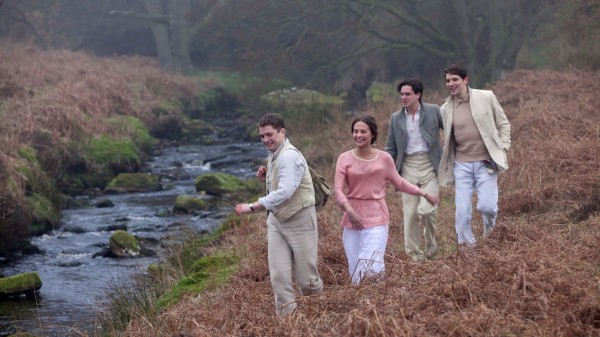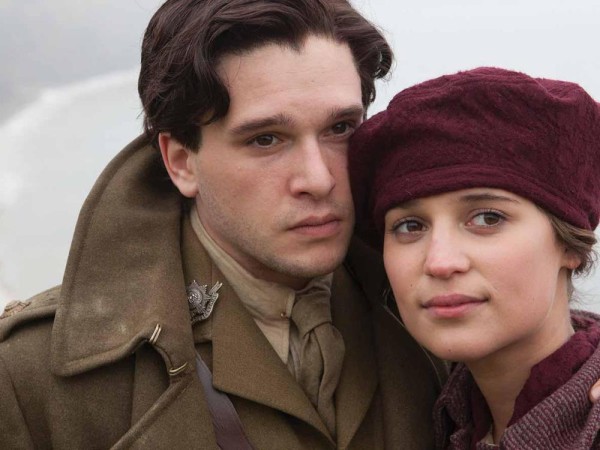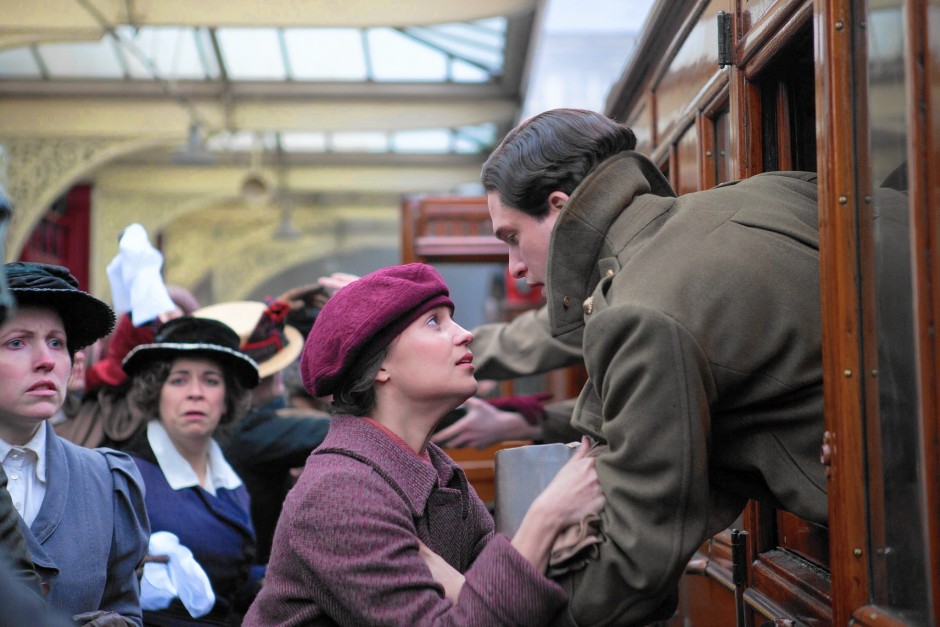Vera Brittain’s memoir, Testament of Youth, struck a chord when it was published in 1933, just 15 years after the end of World War I, supposedly the war to end all wars.
Brittain, a smart, spunky, independent spirit born in an epoch when women were expected to be meek, mild and submissive, elaborated upon themes such an ambition, love and loss, and they resonated with Britons.
Forty five years after her death, Testament of Youth, based on Brittain’s anti-war bestseller, has been brought to the screen by James Kent in his directorial debut. Scheduled to open in Canadian theatres on June 19, it’s a fine film, bursting with drama and romance and infused with a profound sense of tragedy.
Vera, portrayed by Alicia Vikander in a strong and affective performance, is at the epicenter of the movie, which unfolds during a tumultuous four-year period. When first glimpsed in November 1918, Vera, the camera panning on her sombre face, is caught up in street celebrations marking armistice day. At long last a terrible war has run its course.

In a flashback to 1914, Vera is seen swimming in a secluded pond with two young men, her younger brother Edward (Taron Egerton) and his friend, Roland (Kit Harington). Judging by their banter, they obviously enjoy each other’s company.
Vera’s conservative parents (Emma Watson and Dominic West) have mapped out her life, at least as far as they’re concerned. But in a pivotal scene which dispels the notion that she will compliantly bend to their will, Vera raises the flag of rebellion. She does not want to play the pianoforte her parents have bought for her. She is less than interested in finding a husband. She hopes to study at Oxford University. She wants to be a writer.
In short, Vera is going against the grain of conventional middle-class conventions.
Roland, however, appreciates Vera’s bohemian and feminist qualities. A budding poet, he’s fallen hard for Vera. But initially, she keeps him at arm’s length. Edward is also in Vera’s corner, supporting her decision to write the Oxford entrance exam.

Through the medium of newspaper headlines, a viewer discovers that World War I has erupted. Edward, a cadet, enlists in the army, as does Roland. Like the majority of able-bodied men of their generation, they’re animated by an intense desire to serve their country. They naively assume that the war will wind to a close even before they finish their basic training.
As their troop train pulls away from the station, soldiers crane their heads out of windows and wave goodbye to loved ones seeing them off. It’s a scene that masks the terrors that await them on the battlefields of France and Belgium.
Guilt-ridden by her sedate Oxford life, Vera volunteers to be a nurse in a hospital treating wounded soldiers. “I need to do something,” she says. “I can’t bury my head in books.” The headmistress advises her to stay put and continue with her studies, but Vera is determined to go ahead with her plan.
The ferocity of the war is telegraphed through grim casualty lists published in daily newspapers. The war itself is portrayed in fleeting scenes of grimy-faced soldiers manning trenches. Kent dispenses with the blood and gore of combat.
Vera goes to France to tend to the wounded on the Western front. The harsh reality of the war is evoked by the rain, the mud, Vera’s blood-splattered white uniform and the sight of dying or dead soldiers lying on stretchers in a sodden field.
In a scene that attests to her compassion, Vera gamely attends to a German officer whose humanity shines through his last words. Presumably, this poignant encounter exerts a tremendous effect on her postwar thinking.
Testament of Youth doubles back to 1918 as Vera returns to Oxford, meets a fellow student who will become life-long friend and forms her pacifist views.
Vera’s ideas are at the core of the film, which demolishes the foolish notion that war, somehow, is an honorable exercise.
